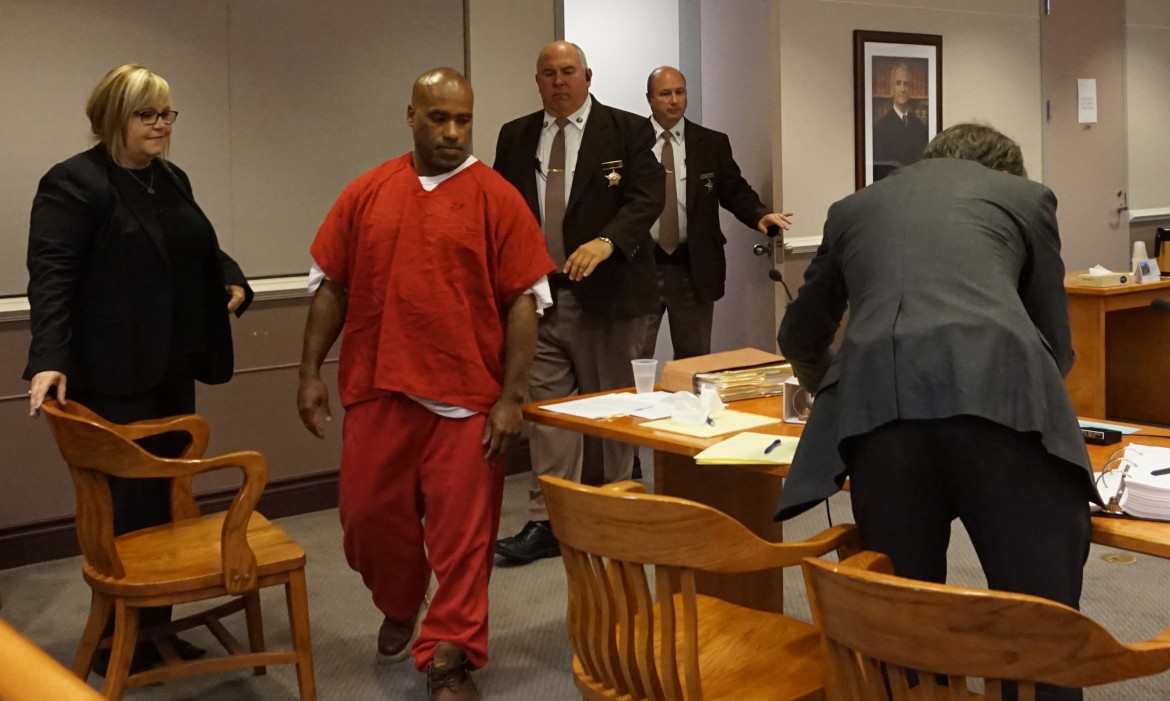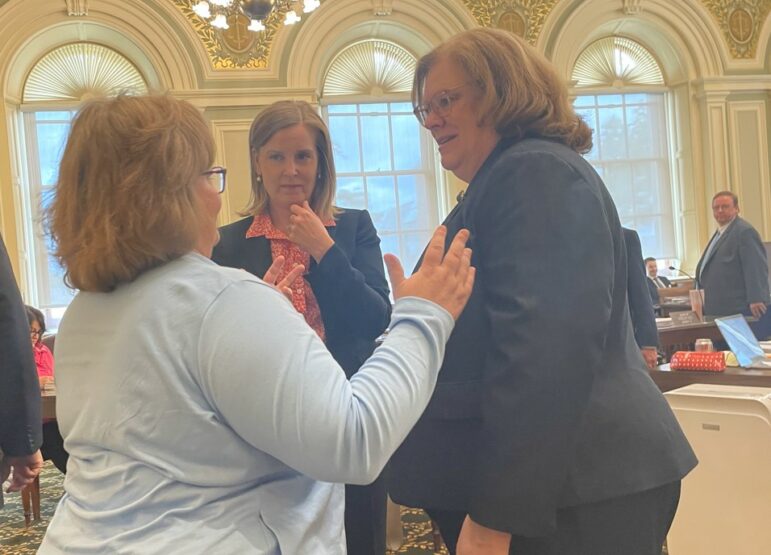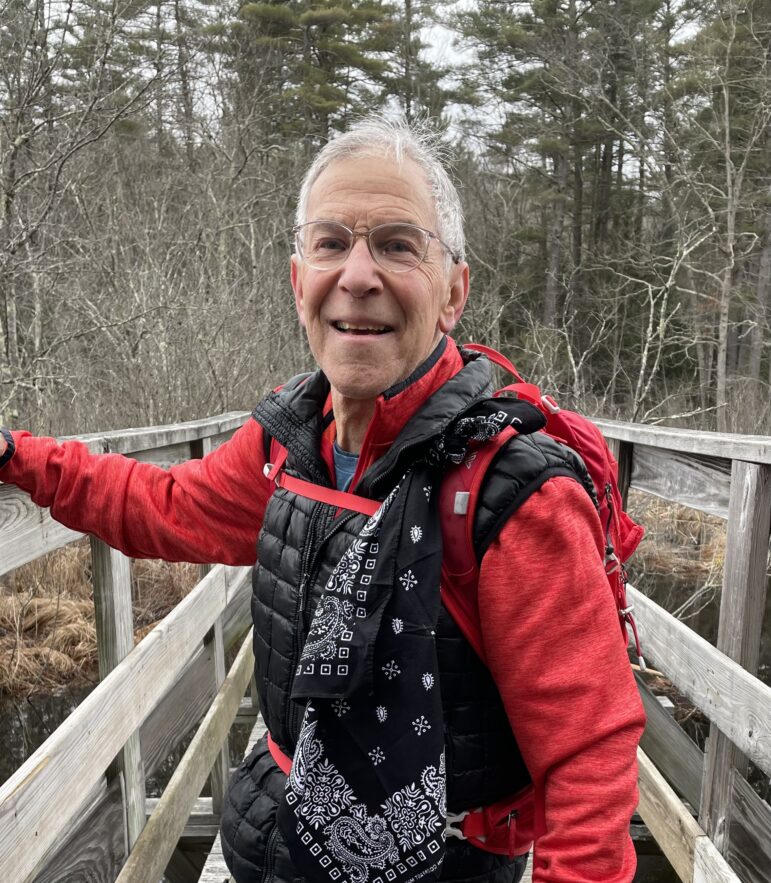Eduardo Lopez Jr.’s lawyers on Tuesday argued the convicted murderer should get a new trial because prosecutors failed to disclose before his trial decades ago that then-Nashua Police detective John Seusing had previously been disciplined for lying.
Bald and wearing red prison garb, Lopez at age 41 bore little physical resemblance to the 17-year-old who was arrested in 1991 for shooting Roscoe Powers who later recovered, then fatally shooting Robert Goyette during a robbery rampage in downtown Nashua.
Public Defender Paul Borchardt told Judge Jacalyn Colburn at Tuesday’s hearing that Seusing’s testimony at Lopez’ trial was critical to the theory of his defense that Lopez was too drunk to form the requisite intent. Seusing performed the videotaped blood alcohol test on Lopez and testified about the results at trial.
“It was the center of the case as it relates to one of the defenses,” Borchardt said. “That’s why (Seusing’s) testimony matters.”
Borchardt argued against the state’s motion seeking summary judgment, which asks the judge to find in the state’s favor and end Lopez’ efforts to get a new trial.
Had Lopez’ attorneys known of Seusing’s discipline for lying to his superiors then owning up to the lie, they could have used it to impeach his testimony. It was definitely impeachment material, Borchardt said.
Assistant Attorney General Patrick J. Queenan said Seusing’s testimony was too tangential to have made a difference in the verdict.
Queenan told the judge that Lopez would have to prove the state knowingly withheld exculpatory evidence and that it was favorable to his case.
“If he meets both of those burdens, he’s only granted a new trial if the state cannot prove this evidence was immaterial,”Queenan said, “that is, the evidence wouldn’t have affected the verdict.”
Lopez can’t meet that burden, he said.
“This court cannot find that this evidence was material because John Seusing was such a peripheral witness, his credibility is not an issue.
“His testimony was minimal,” Queenan said.
Judge Colburn will decide whether to grant Lopez an evidentiary hearing to argue for a new trial because the state failed to disclose Seusing’s discipline. Seusing will likely be called as a witness if a hearing is granted, Borchardt said.
Seusing went on to become chief of the Nashua Police Department and retired in January.
Lopez was also convicted of first-degree assault, attempted first-degree assault and robbery.
Lopez is one of three convicted murderers who were notified two years ago that Seusing had been disciplined for lying in 1986 or 1987. That paved the way for them to seek new trials decades after their unrelated convictions.
Prosecutors are required to disclose all material favorable evidence to the defense before trial. That includes evidence that could reflect negatively on a police officer’s ability to testify truthfully.
Seusing’s discipline came to light two years ago after the Attorney General’s Office investigated allegations that it hadn’t been disclosed in the 1995 Michael Monroe murder case.
Attorney General Joseph Foster found Seusing’s discipline had been disclosed in the Monroe case, but said it wasn’t disclosed in any other case afterward in which Seusing testified for the rest of his career.
That opened the door for Lopez, Timothy Brown and Ronald Schultz to seek new trials.
Brown, who is serving life without parole, told InDepthNH.org that he didn’t seek a new trial because Seusing played only a minor role in his trial.
Schultz was denied his bid for early release because of the disclosure, but he will be released from state prison on parole next month after serving his minimum 22-year sentence for second-degree murder.
Lopez is serving life with no chance for parole. He is a New Hampshire inmate incarcerated at the Massachusetts Correctional Institution at Norfolk as part of an interstate compact.
Lopez is also awaiting word on a U.S. Supreme Court case to determine if he will be resentenced for Goyette’s murder after the court previously ruled life without parole was cruel and unusual punishment for juveniles.
Lopez’ mother, Carmen Aguire, and other supporters also attended the hearing, but did not appear to communicate with him.
Goyette’s family that attended included siblings and a family friend, according to Senior Assistant Attorney General Jeffery Strelzin.
At the hearing, Queenan said Seusing’s testimony wouldn’t have mattered one way or the other.
“Even if John Seusing’s testimony was discarded and the video discarded, there was more than enough evidence, a wealth of evidence,” to convict him, Queenan said.
There was a great deal of evidence against Lopez, Queenan said.
Borchardt said the videotape of Lopez being booked is nowhere to be found. All that is left are the vastly different descriptions the defense and prosecutors gave during trial.
“The state says he’s practically sober, that he’s faking,” Borchardt said. “The defense says he was so drunk he could barely talk or walk.”





